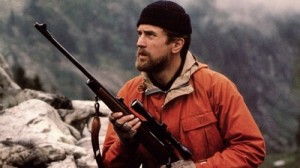 At a gathering of friends a few years ago, our host was proudly showing off his new big screen TV with surround sound. Nobody was paying much attention during the Road Runner cartoons and even less during the Charlie Chaplain movie. At the end of the night when just the inner circle remained, gathered in front of the TV, our host decided to put on a movie for us to watch: Saving Private Ryan, a personal favorite of his. Before I could object, a woman said, “No way. It’s a great movie but I have no intention of ever watching that again.” Saving Private Ryan is a great movie. Big time director, big time stars, five Oscars including Best Director, and six more nominations. But I don’t want to see it again, not that night, not ever.
At a gathering of friends a few years ago, our host was proudly showing off his new big screen TV with surround sound. Nobody was paying much attention during the Road Runner cartoons and even less during the Charlie Chaplain movie. At the end of the night when just the inner circle remained, gathered in front of the TV, our host decided to put on a movie for us to watch: Saving Private Ryan, a personal favorite of his. Before I could object, a woman said, “No way. It’s a great movie but I have no intention of ever watching that again.” Saving Private Ryan is a great movie. Big time director, big time stars, five Oscars including Best Director, and six more nominations. But I don’t want to see it again, not that night, not ever.
We all have our own feel for movies – the good ones, the bad ones, and the ones that are just plain ugly. The ugly we can quickly move on from and a few of the bad eventually become guilty pleasures. But what about the ones that even though they are considered to be in the good to great category, we have no intention of ever watching again?
The following list of films that I will personally never watch again are either great films, extremely popular films, or films made by highly acclaimed directors and actors. Some are Academy Award winners, some are part of the most successful franchises in movie history, and some feature our most beloved movie stars and characters. Others are just good films that deserve to be watched again. Just not by me. These are, simply put, ten movies I do not need to see again.
____________________________________________________________
Forrest Gump (Robert Zemeckis, 1994)
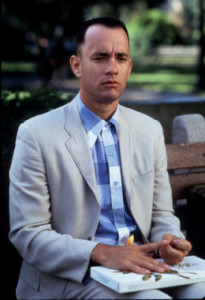
What we take from Forrest Gump is that all things are possible in this world. Or that ignorance is bliss. Take your pick. The godliness in being a simpleton was not lost on the American public who ate it up. Life really is like a box of chocolates. This one won six Academy Awards.
Saving Private Ryan (Steven Spielberg, 1998)
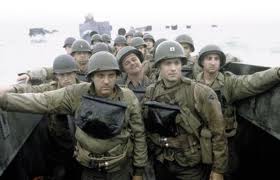
What was the point of the first 20 minutes of this film? Was Spielberg trying to show us that he could make us as sick as those poor guys on Omaha Beach were? Well, he succeeded. When the brutality of combat is presented so realistically, we can only hope to make it to the next scene. By the end of the film I felt like one of the survivors. Unless you like feeling uneasy for almost three hours, there is no pleasure or enjoyment in watching this film. It’s enough to make me want to watch a jingoistic John Wayne WWII film. You can’t take your kids to see it, or your wife, your mom, or your dad. Other than that it’s great.
Schindler’s List (Steven Spielberg, 1993)
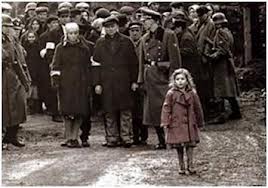
This truly great film is more than difficult to watch; it’s difficult to handle. I saw this on the big screen in 1994 after it had been out for several months, so I knew what I was getting into as did the rest of the audience. At the conclusion everyone walked out in a daze. A young woman was crying uncontrollably, literally being held up by her companion. Everyone should see this film – once.
The Fly (David Cronenberg, 1986)

The most interesting thing about this film is the strange mixture of romance with all of this gore. I’m not sure it works but it does add some much needed pathos. And even this makes me queasy as Brundle’s girlfriend, rather than being horrified, is strangely drawn to her fly-man. The end of Brundlefly is a welcome relief. Some say this is Cronenberg’s best film – which is saying a lot. Crash (1996) is one of the few films I’ve walked out on. I should have done the same with this one.
Never Let Me Go (Mark Romanek, 2010)

It is heartbreaking to watch these children become aware of the nature of their existence and then struggle to reconcile its meaning as they grow older. In the end we wonder if there really are souls behind those eyes, or are they merely lambs being led to the slaughter. And, oh, did I mention that it’s depressing? Otherwise it’s a great movie.
The Deer Hunter (Michael Cimino, 1978)
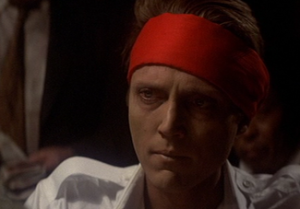
This is really two different movies. The first half, with the wedding scene and the deer hunting scenes are a portrayal of blue collar America as seen in a Pennsylvania steel town. The scenes are incredibly genuine but what follows is something so bizarre that we wonder if it could ever really happen. Any depiction of another senseless war is okay with me, but the bizarre account of Russian roulette parlors in Saigon is beyond comprehension. Even after an emotionally draining resolution, this film is not done with us. Back in Pennsylvania what is left of our players and their families gather for an unnecessary and overly melodramatic rendition of “God Bless America.” Whew. I’m glad that’s over with.
The Silence of the Lambs (Jonathan Demme, 1991)
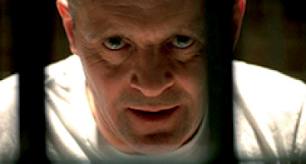
Portraying a serial killer as a highly intelligent psychiatrist makes Hannibal both unbelievable and uninteresting at the same time. What is Demme trying to show us, the dark side of the psychiatric profession? Sitting in a beautifully appointed glass cell, he is supposed to be able to wreck mental havoc on anyone who talks to him. Yeah, right.
Finally, the pathetic scene with Buffalo Bill dancing around in his “woman skin” is repulsive but it’s also laughable. This is exploitation cinema without the fun.
The New World (Terrence Malick, 2005)
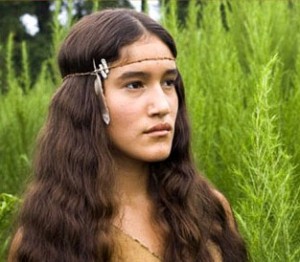
Malick can make anything boring (including a film about the Battle of Guadalcanal) and proves that great cinematography can’t hide a bad script. This one turns one of America’s iconic myths into something we wish we’d never heard of. Malick’s overly introspective film has no emotion and offers no one we care about while showing us in extremely slow camera movements how nature intended the new world to look. We see water, trees, and fields of grass. Then more water, more trees, and more fields of grass. The despoliation of Eden by the white man is better experienced in a National Geographic film. Pocahontas, showing wisdom beyond her years, makes sense of the whole mess when she tells us, “We are like grass.” Now that clears up a few things.
The Lost World: Jurassic Park (Steven Spielberg, 1997)
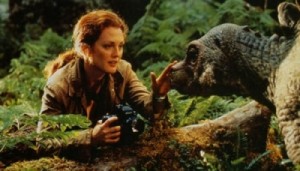
Chaos theory expert Ian Malcom is back on the island again and, like the unpredictability of a drop of water on a human hand, this one proves Malcom’s theory: who could have known this movie would be so bad? Jurassic Park (1993) was creative and this one tries to follow the blueprint but when it’s already been done before, what’s the point? The Lost World proves what we already knew: less is more. The good news is that it’s better than JP3.
Reservoir Dogs (Quentin Tarantino, 1992)
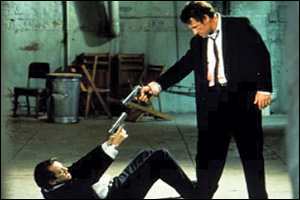
There is an uneasy sense of panic and paranoia about the film as things go very badly for an incredibly interesting cast of characters played by some of the best actors of our time. The shifting back and forth between pre-heist and post-heist scenes actually heightens, rather than deflates, tension.
So what’s wrong with this film? Its unrelenting intensity and hopelessness kind of wore me down. And if watching Mr. Orange bleed out for ninety minutes wasn’t enough, there’s the Mr. Blonde ear torture scene. I’m glad I saw it, but once is enough.

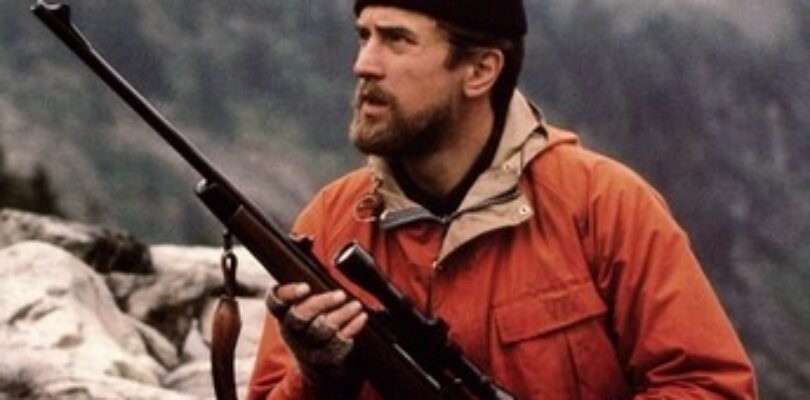

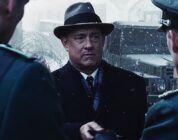

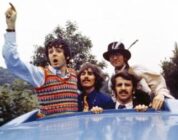
George
Is this satre? If not you’re really stupid.
Eoghan-Tony Dwyer
Saving private Ryan is great for 2nd and 3rd watches. The Lost world is awesome as well
Rick
Wow, this dude taste in movies suck
Justin
Wow dude…get over yourself.
FrankenPC .
??? This HAS to be a masterwork of absurdest satire. The only other possibility is the reviewer is unconscionably under qualified to gauge the quality of cinema masterworks.
Geo
Im going to agree with everyone else in the comments. You really don’t know about movies. Half of these are classics and the other half won best oscar pics. (With a few exceptions e.g New World) nonetheless, how can you compare a movie like Saving private Ryan with New world to begin with?! And as far as “one viewing only”, Everyone here will agree that most of these movies have been watched several times, myself included.
kyle
are you 6 years old or something you had a hard time sitting through reservoir dogs, saving private ryan, and schindler’s list i saw those first 2 when i was like 9 and schiendler’s list sucks ass
rerun717
I think the point of the article is being missed…but also, the writer is totally off base. What would i go back for a 2nd viewing of- Reservoir Dogs or Requiem for a Dream? Saving Private Ryan or Barry Lyndon? I agree that I wouldn’t sit through Schindler’s List or The Deer Hunter again, regardless of how good they are as films, but Silence or Reservoir, those have definitely been watched multiple times.
aymz
If you can’t do, teach? This guy is like the Dr. Evil to Steven Spielbergs Austin Powers. What a troll…
:gj
Tom baker
Crash WAS horrible. The rest, not so much.
MuttonChop
Are those of you leaving comments idiots? Did you even read the introduction to the article, or even the title for that matter? In case you didn’t read the title here it is: Once is Enough: Ten Movies I Do Not Need To See Again Did you read it? Maybe this time around you saw the letter I. It is the authors opinion, ten movies he doesn’t want to see again, he even states that some of them are great movies he just doesn’t want to watch them again. Do I agree with this list, no not entirely but I do with some of them. So I suggest to all the people that wrote comments saying the author was stupid, to go back and read or reread the introduction and then rethink who is stupid.
Mike Tyrkus
Thanks for reading the entire article MuttonChop.
Drvobradi
I agree about Forrest Gump, but not about The Lost World.
Although that film is dumb and flawed, I find it as a classic bad popcorn film that is fun and watchable.
randy glass
Which movies would this guy watch again?
diablo666
It’s Lecter not Lechter.
Mike Tyrkus
Thanks for pointing that one out. Fixed!
Will
You’re a soulless douche
Bungalow Bull
My biggest problem with this whole article is that you and your friends basically ignored classic pieces of film by not paying attention to the Road Runner cartoons, and even worse, the Chaplin film! Those are things that demand repeat viewing.
Galliard Magagliani
Certainly written by a fat kid raised without much contact with the real world. Your opinion about all of these movies can be translated into “okay, I get the point of your movie. so what? boring…”. You deal with the emotions aroused by these movies like a 12 year old.